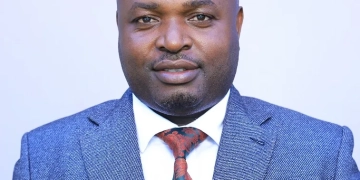
KAMPALA – When the high-profile murder trial of businessman Henry Katanga kicked off on July 9, 2024, the entire country looked on with interest, expecting to witness arguments and counterarguments backed by evidence from both sides in the High Court.
It has been more than three months since the trial proceedings started.
However, I have become increasingly troubled by the shoddiness of testimonies and systemic flaws exhibited by the Office Directorate of Public Prosecutions (ODPP) and police investigators. The sheer audacity of the allegations against the accused is matched only by the alarming clumsiness of the prosecution’s case.
Anyone who has closely been following this highly publicised trial, in which Molly is accused of shooting dead her husband Henry must be disturbed by the profound concerns regarding the integrity of Uganda’s justice system. Allegations of tampered DNA evidence, witness interference, and hasty charges have cast a shadow over the proceedings and raised critical questions on how one can achieve justice under such a system.
At the heart of the controversy lies the prosecution’s reliance on questionable forensic analysis. I watched in disbelief as Mr Andrew Mubiru, the forensic expert at the level of director in the Uganda Police, struggled to explain to the court questions related to DNA evidence-editing and using expired machines, among other concerning reports. The defence has not addressed these claims, fuelling suspicions of a deliberate attempt to compromise the trial’s integrity.
We have also heard of the secrecy surrounding prosecutors’ meetings with key witnesses, including the shamba boy, which has only fuelled suspicions of coercion.
Evidence on the court record is a visitor’s book from Kigo Prison that was presented in the High Court proving that Ms. Naume Nyagweso, a step-sister of the late Katanga, coerced a key witness into implicating Molly Katanga in the murder case.
According to Jet Tumwebaze, one of the defence lawyers, Ms. Nyagweso, along with former Deputy Attorney General Mwesigwa Rukutana, Assistant Inspector of Police Wilber Tworekirwe, and lawyer Lesta Kaganzi, visited George Amanyire, the former shamba boy, at Katanga’s home in February 2024 between 2:27 and 2:30pm, signing in at two-minute intervals, suggesting that they entered together.
Evidence on court records also shows that Mr Tumwebaze quoted Nyagweso as telling Amanyire to “stop telling the story of what happened and say it’s Molly who shot the husband and walked out of the room on the fateful day of November 2, 2023.”
Ms Nyagweso allegedly promised Amanyire’s release within two-and-a-half hours if he cooperated.
Amanyire initially shared his account of events, detailing how he heard Molly being tortured and beaten by her late husband. However, Nyagweso wanted this narrative changed. She reportedly promised to bring officers from CID Kibuli and the DPP’s office to enable Amanyire to record a fresh police statement implicating Molly Katanga, the court heard.
Additional defence testimony revealed that Assistant Commissioner of Police Lydia Katono and Chief State Attorney Jonathan Muwaganya visited Amanyire the following day.
If this doesn’t amount to interference, then, no one knows.
Despite a lack of conclusive evidence, the haste with which suspects were charged suggests a troubling prioritization of convictions over justice.
This rush to judgment raises fundamental questions about the motivations behind the DPP and investigators’ actions. The Judiciary needs to pay attention to these glaring violations to put an end to actions that undermine the impartiality of the investigation. The ODPP and investigators must demonstrate a genuine commitment to justice, rather than merely seeking convictions.
Systemic flaws within Uganda’s justice system have been exposed, eroding public trust. Previous cases have revealed similar irregularities, highlighting the urgent need for comprehensive reform. The Katanga trial serves as a litmus test for Uganda’s commitment to justice and accountability.
Ugandans are watching closely, aware that the stakes are high. The implications of this trial extend far beyond the individual case, speaking to the very fabric of Uganda’s justice system. The integrity of the entire system is on trial, and its credibility hangs in the balance.
The government must take concrete steps to address the systemic flaws exposed by this trial. This includes establishing an independent body to investigate allegations of misconduct and ensuring transparency in evidence handling and witness protection.
The Uganda Law Society, the Judicial Service Commission, and other stakeholders must also play a critical role in promoting accountability and transparency within the justice system. Anything less will perpetuate a culture of impunity, undermining the very foundations of Uganda’s democracy.
The writer, Veronica Aliru is a concerned Ugandan citizen based in the United Kingdom










Discussion about this post